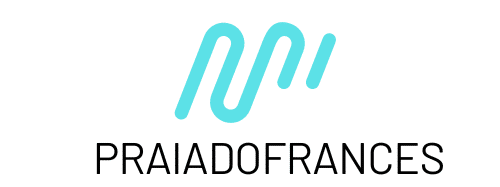What’s the Best Way to Introduce a Labrador Retriever to Duck Hunting?

As Labrador Retriever owners, you’ve probably marveled at your pup’s inherent passion for retrieving objects. This breed is born with an exceptional ability to fetch, making them a top choice for hunting enthusiasts worldwide. When it comes to duck hunting, Labrador Retrievers are second to none. But how do you channel their innate skills towards this specific hunting discipline? In this article, you will find an extensive step-by-step guide to train your Labrador Retriever for duck hunting effectively.
Starting from the Basics: Basic Obedience Training
Before your dog can become a promising hunting companion, it must first master basic obedience. You can’t expect your dog to retrieve a duck effectively if it cannot understand and follow basic commands.
A lire également : Can You Toilet Train a Persian Cat, and If So, How?
Start with commands such as ‘sit’, ‘stay’, ‘come’, and ‘heel’. These are invaluable in the field, particularly in ensuring your dog’s safety. It can take time to perfect these commands, so patience is key. Always remember to reward your dog with praise or treats when it follows a command correctly, as this will reinforce the behaviour.
Another vital aspect of basic obedience training is leash control. Your Labrador Retriever should be able to walk alongside you without tugging on the leash, as this signifies respect and attentiveness.
Sujet a lire : What’s the Best Approach to Training a Belgian Malinois for Police Work?
Introducing Your Pup to the Water
Labrador Retrievers are known for their love of water. After all, they were bred to retrieve fishing nets in the cold waters of Newfoundland. However, not all Labs are comfortable with water from the get-go.
It’s best to introduce your pup to water at a young age, preferably around 3-4 months old. Start with shallow water and gradually increase the depth as your dog’s confidence grows. You can encourage your pup to enter the water by tossing a toy or a dummy for them to retrieve.
It’s crucial at this stage that your Labrador associates water with positive experiences. Hence, never force or rush your dog into the water. Allow them to explore and get used to it at their own pace.
Familiarizing with Hunting Equipment: The Gun and the Dummy
Once your dog is comfortable with water and has mastered basic obedience, it’s time to introduce hunting equipment. Start by familiarizing your retriever with the dummy.
The dummy, often shaped like a bird, is used to simulate the experience of fetching a duck. You can begin by playing fetch with the dummy on land before progressing to water retrieves. Ensure that your retriever is comfortable with the dummy in its mouth and that it’s able to carry it correctly.
The next step is to introduce the sound of a gun. Dogs can be naturally fearful of loud noises, so it’s crucial to associate the sound of a gun with positive experiences. This can be achieved by introducing the sound gradually and in conjunction with activities your dog enjoys, such as retrieving the dummy.
Turning Training into a Game: Incorporating the ‘Hunt’
Once your retriever is comfortable with the dummy and the sound of a gun, you can start simulating hunting scenarios.
Begin by hiding the dummy in tall grass or light brush and encouraging your dog to find it. This process is called ‘quartering’ and it helps your dog develop the skills it will need to locate downed birds in the field.
Also, start incorporating ‘blind retrieves’ into your training sessions. This is when you throw the dummy without your dog seeing where it lands. This type of training helps develop your dog’s ability to follow your directional cues and retrieve the dummy based on scent, rather than sight.
Gradual Introduction of Live Birds into Training
The final step in training your Labrador Retriever for duck hunting is the introduction of live birds. This should be done gradually and with care to ensure that your pup is not frightened or overwhelmed.
Initially, you can use pigeons or other small birds for training. Reward your dog when it successfully retrieves the bird. This phase is also an excellent opportunity to train your dog to ‘soft mouth’, which means carrying the bird without damaging it.
Remember, the key to successful training is patience, consistency, and positive reinforcement. With time, your Labrador Retriever will develop the skills and confidence it needs to be a successful duck hunting companion.
Incorporating Scents: Transition from Dummy to Real Birds
After your Labrador retriever is comfortable with retrieving dummies and is not gun shy, it’s time to introduce the scent of real birds into your training sessions. This crucial step effectively bridges the gap between dummy training and real hunting.
You can start by adding bird scent to the dummy. The aim is to associate the smell of the bird with the act of retrieving. You can find bird scent products in pet stores or online. It’s important to choose a scent that closely matches the smell of ducks.
Next, transition from using a dummy to using a dead bird. You can source these from local hunters, game farms, or shops selling game meat. The goal here is to get your retriever familiarized with the weight, feel, and smell of a real bird.
A good tip is to start these sessions in an environment familiar to your dog, like your backyard. Throw the bird a short distance away and encourage your dog to retrieve it. Always remember to reward your dog for successful retrieves, reinforcing this positive behavior.
Moreover, introduce the concept of ‘bird delivery’ during this phase. Teach your dog to bring the bird back to you and to release it gently on command. Remember, the key here is patience and consistency, as these new concepts can take time to master.
Once your dog is comfortable retrieving dead birds, you can gradually introduce wing-clipped birds into the mix. Wing-clipping ensures the bird can’t fly away but can still move around, providing a more realistic hunting simulation for your retriever.
The Final Stage: Field Training
Field training is the final step in preparing your Labrador retriever for duck hunting. This stage involves practicing all the skills your dog has learned so far in a real hunting environment.
Firstly, expose your dog to different hunting terrains. This could include marshlands, lakes, and forested areas. Remember, each type of terrain will pose different challenges for your retriever, and familiarizing them with these environments will enhance their hunting skills.
Practice retrieving sessions with live birds in these environments. You can use wing-clipped birds or, if it’s hunting season, real ducks. Always supervise these sessions closely to ensure your dog’s safety and the ethical treatment of the birds.
Also, simulate hunting scenarios with other hunters and dogs if possible. This will teach your dog to work in harmony with other dogs and people, a crucial skill for hunting. Plus, it familiarizes them with the hustle and bustle of a real hunting scenario.
Remember, the goal is to make each training session as realistic as possible, so your dog can transition smoothly to actual hunting. Each dog will progress at their own pace. So, even if your Labrador retriever seems to be lagging, don’t lose hope. With time, patience, and consistent training, your dog will undoubtedly become an excellent hunting partner.
In Conclusion
Training a Labrador Retriever for duck hunting is a process that requires time, patience, and consistency. Starting with basic obedience training, gradually introducing water, acclimating your dog to the sound of a gun, transitioning from dummies to real birds, and finally, field training are all crucial steps in this process.
Remember that your dog’s safety, comfort, and happiness should always be your top priority during these training sessions. If done correctly, this training not only results in a skillful hunting dog but also strengthens the bond between you and your Labrador Retriever.
With time and consistent training, your Labrador Retriever will certainly live up to its reputation as the best duck hunting dog, providing you with a loyal and efficient hunting partner for many hunting seasons to come. Happy training!
